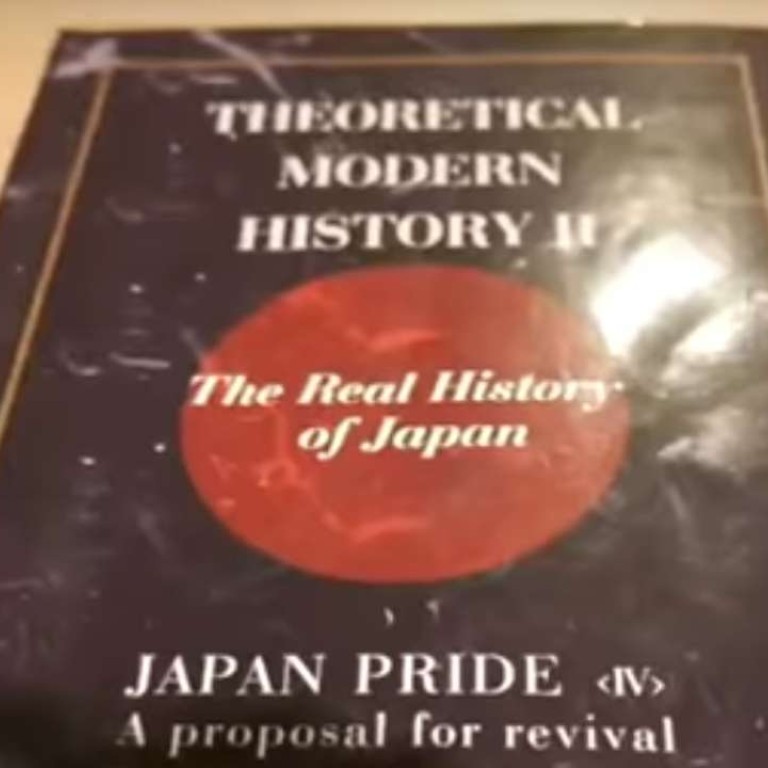
Japan hotel chain under fire for CEO’s book that denies Nanking Massacre
A book, available in the hotel chain’s rooms and written by the group’s chief executive officer, characterised as ‘absurd’ the Chinese position that 300,000 people were killed in the 1937 Nanking Massacre
A Japanese hotel chain is refusing to remove copies of a book, written by its CEO, from rooms despite complaints from guests that it denies the wartime massacre of Chinese civilians by Japanese troops.
APA Group, a Tokyo-based land developer and operator of 400-plus hotels, drew fire for spreading the revisionist views of company president Toshio Motoya by putting the books in hotel guestrooms and also selling them.
China has lodged a complaint, but APA says it stands by its owner’s views.
The issue surfaced Monday when contributors KatAndSid posted a video on a social networking site describing the English version of Theoretical Modern History, a book Motoya wrote under the pen-name Seiji Fuji.
Watch: video of tourists showing book that claims Nanking Massacre was fabricated
The video shows a female tourist buying the book at an APA hotel in Tokyo, opening it and showing passages calling the 1937 massacre an “imaginary” event concocted by China to blame Japan.
It is subtitled in Chinese.
The narrator, who does not give her name, says that while the hotel’s owner has a right to express his views, people should be aware of his stance.
“People who give their money to this hotel deserve to know the truth about it,” she said.

The massacre of Chinese citizens by the Japanese military in what became known as “the rape of Nanking” is one of the biggest flashpoints between the two countries. China says up to 300,000 people were killed, while Japanese nationalists have said far fewer died or denied there even was a massacre.
Motoya said the killing of 300,000 people was impossible because the city’s population at the time was only 200,000.

When asked about the book, Chinese Foreign Ministry spokeswoman Hua Chunying said Tuesday that “some forces in Japan have been denying history from the outset and even attempting to distort it.”
Coercive recruitment of comfort women and the massacre were crimes against humanity committed by wartime Japan and “an iron-clad fact recognised by the international community,” she said.
“History can never change over time, and facts will not fade away despite deliberate evasion.”
Huawang International Group, a Chinese travel company operating in Japan, said on its Weibo account that it wouldn’t provide reservations for the hotel group until the CEO removes the books and “publicly apologises.”

Spending by Chinese tourists has been a source of growth for Japan’s economy in recent years, with visitors passing an annual 6 million for the first time in 2016, a 28 per cent increase from the previous year.
Japan’s top government spokesman Yoshihide Suga declined to comment directly on the spat, saying the two neighbours should look to the future.
“We need to tackle shared global challenges with a forward-looking view, rather than paying excessive attention to our unfortunate history,” Suga said Wednesday.
In an English-language statement, APA acknowledged it has received “floods of opinions” and queries after a guest uploaded a picture of the book on the internet.

It added that the publication was “not aimed [at criticising] any specific state or nation, but for the purpose of letting readers learn the fact-based true interpretation of modern history”.
“We have no intention of withdrawing the book from our guestrooms even if we receive criticisms from those with different viewpoints.
“Japan guarantees freedom of speech, and no one-sided pressure should be allowed to cause a retraction of a statement.”
The Japanese military invaded China in the 1930s and the two countries fought a full-scale war from 1937 until Japan’s defeat in the second world war in 1945.
Some foreign academics estimate a lower number were killed in the massacre, but there is very little mainstream scholarship doubting that it took place.
Agence France-Presse, Bloomberg and Associated Press
